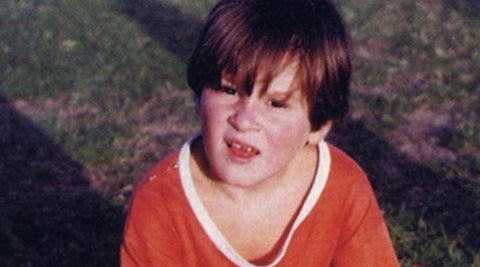If you have a child who is a youth soccer player, you have likely heard the frustrating feedback that they are "undersized." It can be discouraging for both the child and the parents, but it's important to remember that size doesn't always determine success on the soccer field. In this blog, we will discuss ways to keep your child encouraged and driven, even in the face of this type of feedback.
The "Undersized" Label
It's not uncommon for youth soccer coaches and scouts to focus on physical attributes when evaluating players. While it's true that height and strength can be advantageous in some positions, they are not the only factors that determine a player's ability to succeed on the field. Many professional players have shown that size doesn't always matter. In fact, some of the most successful players in history have been on the smaller side.
One example is Lionel Messi, who is often referred to as one of the greatest soccer players of all time. He is only 5'7", yet his speed, agility, and technical skills have allowed him to dominate on the field. He has won numerous awards, including seven Ballon d'Or titles, and has led his team to multiple championships.

Another example is Xavi Hernandez, who is known for his incredible passing abilities and strategic thinking on the field. Despite being only 5'7", he has won numerous titles, including the World Cup and the UEFA Champions League.

These examples show that while size can be an advantage in some situations, it's not always necessary for success on the soccer field.
Encouraging Your Child
As a parent, it can be difficult to watch your child receive feedback that they are "undersized." You may feel frustrated or helpless, but it's important to remember that you can still encourage your child and help them overcome this label.

One way to do this is to focus on their strengths. If your child has superior technical skills or excellent footwork, praise them for those abilities. Help them see that these skills are just as important as physical attributes, if not more so, and that they can use them to their advantage on the field.
Another way to encourage your child is to remind them that they are not alone. There are many professional players who have faced similar challenges, and yet have still found success. Share stories of players like Messi and Hernandez with your child, and help them see that it's possible to overcome the "undersized" label and still become a successful soccer player.
It's also important to help your child set realistic goals. While it's great to dream big, it's also important to be realistic about what is achievable. Work with your child to set goals that are challenging but attainable, and help them create a plan to reach those goals. By doing so, you can help your child stay motivated and focused on their development as a player, rather than getting bogged down by their size.
Dealing with Frustration
It's natural for your child to feel frustrated when they receive feedback that they are "undersized." However, it's important to help them deal with that frustration in a constructive way.
Encourage your child to use their frustration as motivation to work harder and improve their skills. Help them see that they have control over their own development as a player, and that they can use their frustration as fuel to become even better.

It's also important to help your child develop a growth mindset. This means helping them see that they can improve their skills over time through hard work and dedication. Encourage your child to view mistakes as learning opportunities, and help them see that setbacks are just temporary roadblocks on the way to success.
Being labeled as "undersized" can be frustrating for youth soccer players and their parents. However, it's important to remember that size is not the only factor that determines success on the soccer field. By focusing on their strengths, setting realistic goals, and using frustration as motivation, youth soccer players can overcome the "undersized" label and achieve success.
